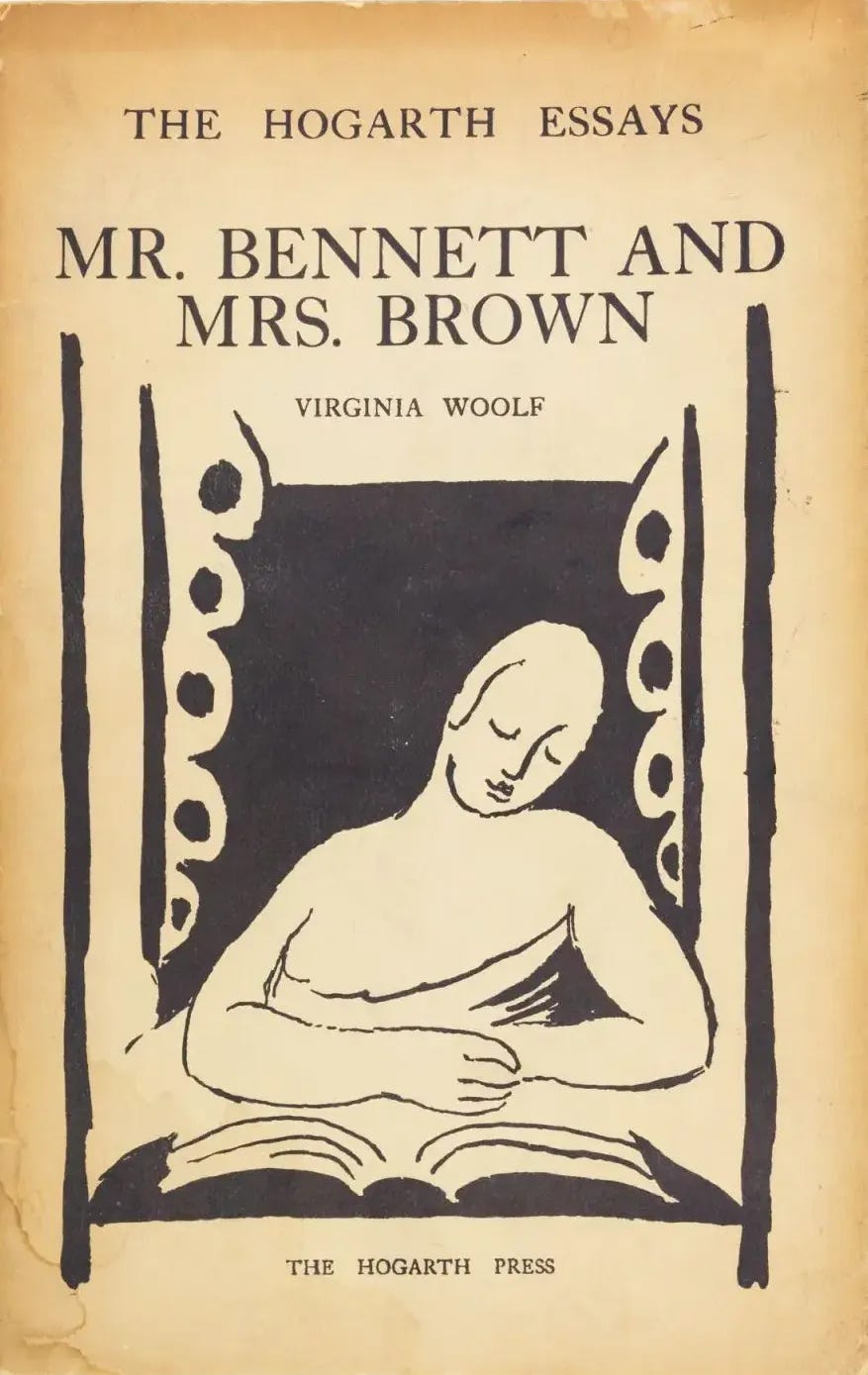‘Mrs Dalloway said she would buy the flowers herself.’
On Wednesday 18th next week, we are going to read Mrs Dalloway by Virginia Woolf in real-time – 100 years after this remarkable novel was first published.
If you would like to join us, we’ll be reading intermittently from 10am until 10pm. The timetable is here. We’ll be able to chat during the day and I’ll send a report next Friday 20th June, where there’ll also be the opportunity to post comments as usual.
I look forward to reading with you! All the details are here.
Before we read Mrs Dalloway, I wanted to mention an essay that Woolf had written a year earlier.
On 18 May 1924, Woolf was invited by the Cambridge University Heretics Society to deliver a paper and she gave a speech with the title ‘Mr. Bennett and Mrs. Brown’. In July 1924, T. S. Eliot published Woolf’s essay in The Criterion as ‘Character in Fiction’ and then in October 1924, Leonard and Virginia Woolf published a standalone edition, under the original title, with a cover illustrated by Vanessa Bell.
The essay began as a response to the novelist Arnold Bennett, who had written a critical review of Woolf’s previous novel, Jacob’s Room, in March 1923.
Woolf unpicks Bennett’s argument and in the process draws a distinction between two generations of writers: the traditionalist, ‘Edwardian’ generation, represented by Bennett, and the new, experimentalist, ‘Georgian’ generation, represented by James Joyce and T. S. Eliot.
The essay then becomes something of a manifesto for modernism, a defence of experimentation and failure, and a prophesy of literary riches to come.
Here is the final section:
The literary convention of the time is so artificial . . . that, naturally, the feeble are tempted to outrage, and the strong are led to destroy the very foundations and rules of literary society. Signs of this are everywhere apparent. Grammar is violated; syntax disintegrated; as a boy staying with an aunt for the weekend rolls in the geranium bed out of sheer desperation as the solemnities of the sabbath wear on. The more adult writers do not, of course, indulge in such wanton exhibitions of spleen. Their sincerity is desperate, and their courage tremendous; it is only that they do not know which to use, a fork or their fingers. . . . We must reconcile ourselves to a season of failures and fragments. We must reflect that where so much strength is spent on finding a way of telling the truth the truth itself is bound to reach us in rather an exhausted and chaotic condition. . . . Tolerate the spasmodic, the obscure, the fragmentary, the failure. Your help is invoked in a good cause. For I will make one final and surpassingly rash prediction—we are trembling on the verge of one of the great ages of English literature.
You can read the full essay here.
Woolf wrote this essay while she was drafting and redrafting Mrs Dalloway. Perhaps she saw her own novel as a mixture of failure and fragments – perhaps she saw it as a breath of fresh air – or perhaps she saw it, as we see it today, as one of the greatest achievements of one of the great ages of English literature.
I look forward to reading Mrs Dalloway together.
I’ll see you just before 10am on Wednesday! I’ll be posting on Substack chat and I’d love to hear from you. (You can access Substack chat either through the Substack app or on the web.)
A few people have asked about timezones. I will be reading in London on local British Summer Time (an annual adjustment, first introduced in 1916 at the suggestion of William Willett and referred to by Peter Walsh in Mrs Dalloway).
If you are in the same timezone, that’s great! If not, I would recommend following the timetable in your local time – and just feel free to join the relevant comment threads when you get to each relevant section.
Here are links to our previous Mrs Dalloway posts:
The Schedule (21 May)
Virginia Woolf (28 May)
And if you’re not planning to read Mrs Dalloway with us, remember you can choose to opt out of our conversation. Just follow this link to your settings and, under Notifications, slide the toggle next to ‘Mrs Dalloway’. A grey toggle means you will not receive emails relating to this title.






Brilliant essay! Thanks! I finished Jacob's Room last week. It had languished for months, as I felt I just wasn't getting it. But I did finally glimpse what it was trying to do -- and that essay adds even more illumination.
I was unaware of this essay. Thank you!